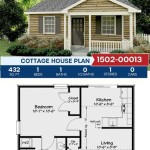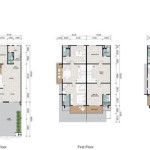Comprehensive Overview of Housing Plans in Zimbabwe
Access to adequate and affordable housing is a fundamental human right and a cornerstone of social and economic development. In Zimbabwe, the government and various stakeholders are committed to improving access to housing, with several plans in place to address the housing needs of the population.
The National Housing Policy
The National Housing Policy, launched in 2012, outlines the government's vision for the housing sector in Zimbabwe. It aims to promote access to adequate, affordable, and sustainable housing for all citizens, with a focus on low-income households. The policy identifies key strategic objectives, including:
- Increasing housing supply.
- Improving affordability.
- Promoting home ownership.
- Ensuring adequate urban infrastructure.
- Reducing homelessness.
The Zimbabwe Housing Masterplan
The Zimbabwe Housing Masterplan, developed in partnership with UN-Habitat, is a comprehensive framework for guiding the implementation of the National Housing Policy. It provides a detailed plan for addressing the housing needs of the population, focusing on sustainable urban development, affordable housing, and inclusive communities.
The Masterplan emphasizes the importance of stakeholder collaboration, including government, private sector, financial institutions, and community organizations, to achieve its ambitious goals.
Key Features of Housing Plans in Zimbabwe
Housing plans in Zimbabwe prioritize the following key features:
- Affordability: Ensuring that housing is accessible to low-income households through subsidies, rent control, and alternative financing mechanisms.
- Sustainability: Promoting environmentally friendly and energy-efficient housing designs to reduce carbon footprint.
- Community involvement: Engaging communities in the planning and implementation process to ensure their needs are met.
- Mixed-use developments: Encouraging the development of integrated communities with a mix of residential, commercial, and social amenities.
- Urban renewal: Revitalizing existing urban areas through infrastructure upgrades, housing improvements, and community empowerment programs.
Challenges to Housing Provision
Despite the efforts of the government and stakeholders, Zimbabwe faces several challenges in meeting its housing targets. These include:
- Limited funding and resources.
- Land access constraints.
- High cost of building materials.
- Informal settlements.
- Lack of skilled labor.
Conclusion
Housing plans in Zimbabwe provide a comprehensive roadmap for addressing the housing needs of the population. They prioritize affordability, sustainability, and community involvement, aiming to create inclusive and thriving communities. While challenges remain, the government and stakeholders are working collaboratively to overcome these barriers and ensure that all Zimbabweans have access to adequate and affordable housing.

House Plans Zimbabwe Building Architectural Services Modern Free

House Plans Zimbabwe

Medium Density House Plans S Building Designs Zimbabwe Zbms

2 Bedroom Cottage Plans English House Zimbabwe For Cottages In Small Floor Design

3 Bedroom High Density House Plan Palmer Construction Zimbabwe

Zimbabwe House Plans Designs Floor By Maramani

Local Ads

5 Bedroom Medium Density House Plan Garage Palmer Construction Zimbabwe

High Density House Plans S Zimbabwe Building Materials Suppliers

Home Zim Homes








